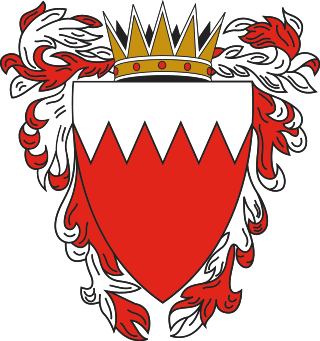Related Research Articles

The Politics of Oman take place in a framework of an absolute monarchy,where the Sultan of Oman is both head of state and head of government. The Sultan is hereditary,who appoints a cabinet to assist him. The sultan also serves as the supreme commander of the armed forces and prime minister.

The Islamic Consultative Assembly,also called the Iranian Parliament,the Iranian Majles or ICA,is the national legislative body of Iran. The Parliament currently consists of 290 representatives,an increase from the previous 272 seats since the 18 February 2000 election. The most recent election took place on 21 February 2020,and the new parliament convened on 28 May 2020.

Elections in Botswana take place within the framework of a multi-party democracy and a parliamentary system. The National Assembly is mostly directly elected,and in turn elects the President and some of its own members. The Ntlo ya Dikgosi is a mixture of appointed,hereditary and indirectly elected members.

Following the 2011 Tunisian revolution,elections in Tunisia for the president and the unicameral Assembly of the Representatives of the People are scheduled to be held every five years. The assembly can be dissolved before finishing a full term.

The People's National Assembly,abbreviated APN,is the lower house of the Algerian Parliament. It is composed of 407 members directly elected by the population. Of the 407 seats,8 are reserved for Algerians living abroad. Members of the People's National Assembly are directly elected through proportional representation in multiple-member districts and serve terms lasting five years at a time. The last election for this body was held on 12 June 2021. The minimum age for election to the Assembly is 28.

The Council of Representatives,sometimes translated as the "Chamber of Deputies",is the name given to the lower house of the Bahraini National Assembly,the national legislative body of Bahrain.

The National Assembly is the unicameral legislative house of the Parliament of Mauritania. The legislature currently has 176 members,elected for five-year terms in electoral districts or nationwide proportional lists.

The Consultative Assembly is the lower house of the Council of Oman. It is the only legislative body in Oman of which all members are democratically elected. The other chamber of the parliament is the Council of State.

General elections was held in Oman on 15 October 2011 to elect the 84 members of the Consultative Assembly.

Parliamentary elections were held in Iran on 26 February 2016 to elect members of the Islamic Consultative Assembly for all seats in the 10th parliament in the Islamic Republic era and the 34th since the Persian Constitutional Revolution. A second round was held on 29 April 2016 for some constituencies where candidates failed to obtain the required minimum 25 percent of votes cast. The elected MPs served from 28 May 2016 to 27 May 2020.

General elections were held in Bahrain in November 2014 to elect the forty members of the Council of Representatives. The first round of voting took place on 22 November,with a second round on 29 November in the 34 constituencies in which no candidate received a majority.

General elections for the Consultative Assembly were held in Oman on 25 October 2015.

General elections were held in Oman on 14 September 2000. They were the first direct elections in the country's history.

General elections were held in Oman for the first time in 1991.

General elections were held in Oman in 1994. They were the first elections in a Gulf Arab country in which women could both vote and stand as a candidate.

General elections were held in Oman on 16 October 1997.
Taiba bint Mohammad al-Mawali is an Omani politician. In 1994,she and Shakour bint Mohammed al-Ghamari were indirectly elected to the Consultative Assembly,becoming the first women in the Parliament of Oman.

Lujaina Mohsin Haider Darwish is an Omani politician. Along with Rahila Al Riyami,she was one of the first two women to be directly elected to the Consultative Assembly in 2000. In 2015 she was appointed to the Council of State. Darwish is also the chairperson of ITICS at Mohsin Haider Darwish.

In the total 11 terms of the Parliament of the Islamic Republic of Iran,78 women have won 111 seats in various terms. Some of these women were subsequently disqualified by the Guardian Council,some failed to win the necessary votes to re-enter parliament,some were imprisoned or left Iran,and others are still seeking re-election to the parliament. There are 16 women from 13 constituencies in the current term of the parliament of Iran.

General elections were held in Oman on 29 October 2023. As the country is an absolute monarchy,the legislature is a purely advisory body.
References
- ↑ As the Conference Ends, What Now for Women? The New York Times, 2 July 1975
- ↑ Safety First launches Oman Daily Observer, 9 June 2012
- ↑ Calvin H Allen & W Lynn Rigsbee II (2014) Oman Under Qaboos: From Coup to Constitution, 1970-1996, Routledge, p56
- ↑ Women join Oman council The Independent, 25 November 1997
- ↑ Parliamentarian par excellence Oman Economic Review, October 2010